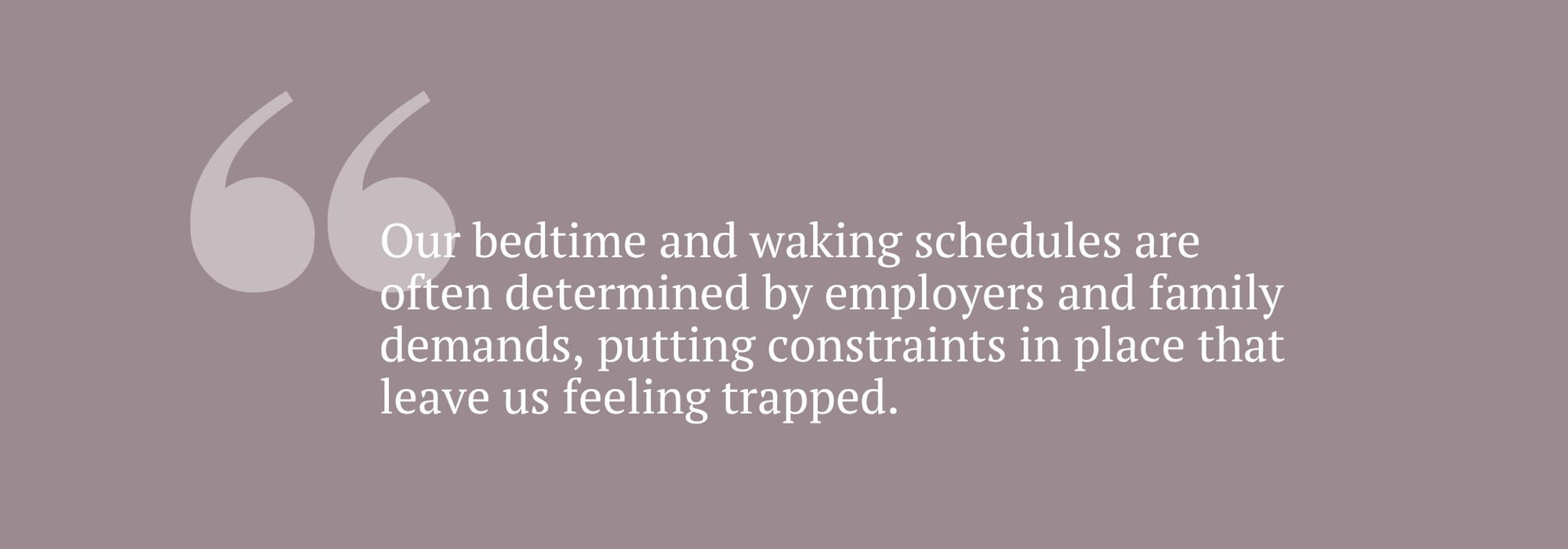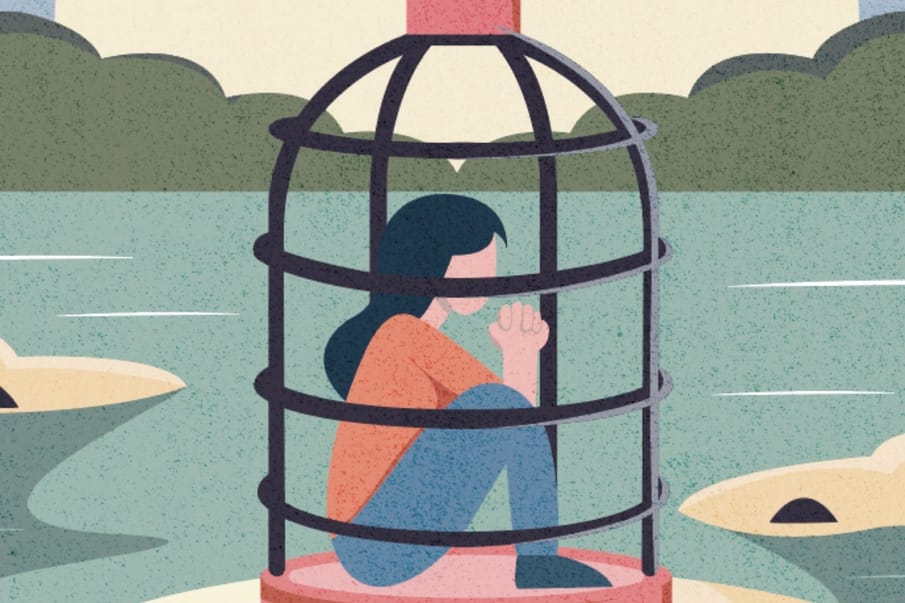We take a deep dive into what zoochosis is, and how we can break free from the human form of it
As a child, I loved going to the zoo. Seeing exotic breeds like rhinos and giraffes was magical, and cemented my love for animals – but as an adult, I can’t help but see zoos in a different light. How do these creatures cope when they are removed from their natural habitat? Can they ever really be happy spending their lives living in an enclosure?
According to the late actor and animal rights activist Bill Travers, many of them suffer from ‘zoochosis’ – a term that describes the obsessive, repetitive behaviours often displayed by wild animals that are held in captivity. He concluded that the behaviours (such as pacing, circling, swaying, head-bobbing, neck-twisting, bar-biting, feather-plucking, over-grooming, and excessive licking and chewing) were evidence of captivity-induced neurosis.
With research published by the Institute of Practitioners in Advertising stating that the average Brit spends a staggering 18 hours and 43 minutes at home every day, and one in four people in England experiencing a mental health problem each year, it got me thinking: are some of our human behaviours a result of metaphorical captivity?
Living in a cage
Although zoochosis is a term reserved exclusively for animals, numerous studies have confirmed that, as humans, we’re happier and healthier when we live in connection with nature – whether that’s eating whole foods, spending time outdoors, making physical contact with the earth, or honouring the seasonal, rhythmic patterns of life.
Our bodies have evolved for movement and natural light cycles, yet research from Bupa found that two in five adults in the UK spend less than an hour a day outdoors, with lack of access to green spaces having a knock-on effect on mental and physical health. Meanwhile, artificial lighting found in homes and offices can impact melatonin levels and sleep quality.

More than a third of adults naturally crave more sleep during winter, according to a survey by the American Academy of Sleep Medicine, but our bedtime and waking schedules are often determined by employers and family demands, putting constraints in place that leave us feeling trapped. We’re also wired for play – an aspect of human nature that is often conditioned out of us as we become adults, relegated to a few hours a week, or ending up becoming a monetised side-hustle to address the rising cost of living.
When animals are placed in cages that deny access to movement, daylight, natural sleep cycles, and play, they act out. Where a big cat might pace endlessly, humans scroll on social media. Where an alligator may stop eating, a human might do the same. And when you think about the ways that external forces stop you from enjoying simple pleasures – such as an afternoon hike instead of looking at a computer screen – you too may want to gnaw frantically on the metaphorical bars that keep you trapped. Yet, very few of us have the privilege or the means to escape the entrenched systems that oppress us.
Breaking free
In the same way that animals can show signs of unhelpful, sometimes harmful, coping mechanisms as a result of mental stress, humans can, too. For example, someone who doesn’t feel they match up to society’s idea of beauty may engage in negative self-talk, or even develop an eating disorder. Similarly, a parent who is struggling financially may turn to substance abuse as a way to temporarily soothe the emotional discomfort. But it can also be more subtle.
“If you notice increased worry, stress, or even feelings of numbness, it could be a sign that you are enduring a stressful environment,” says counsellor Hannah Cheriford. She also notes that “when we are pushing through, the way we think about ourselves can change”.
Are you noticing that you talk in ‘shoulds’ about yourself? Minimising your anger by saying you ‘should’ be grateful? Or dismissing your grief by saying you ‘should’ be OK?
“Shoulds are a warning sign that we are managing our needs through shame and criticism,” says Hannah. “Though this can help motivate you in the immediate moment, over time it creates low self-esteem, exhaustion, and suffering.”
You might notice that you give yourself a hard time for not matching up to external (often imagined and/or unrealistic) expectations. Hannah emphasises the need for self-compassion here. In the same way that an animal with zoochosis deserves to be treated with care and dignity to restore their sense of wellbeing, so do you.
One practical technique, often used in compassion-focused therapy, is to witness your experience through a compassionate lens. Start with the physical experience by doing a mindful body scan. With every breath, gently focus on a different body part, working slowly from head to toe. Acknowledge each sensation without judgement – this acts as a permission slip for your body to just ‘be’, without the added pressures that fall on your shoulders every day.

“Many people have learned to override or reject their needs to stay functional,” explains Hannah. “Focusing on your physical presence, and pausing to scan your body and notice how it feels in the present moment, can begin the process of reconnection.”
Any activity that helps you connect with your body is helpful, be that dancing, singing, climbing stairs, or playing with a pet. This reconnection with your physical needs can extend to sleeping patterns, too. Try to have one day a week where you wake up naturally without an alarm, and adjust bedtimes to allow for more sleep in the winter.
Another approach is to invest time in social connections. Historically, adults have always existed within communities – to combine resources, tell stories, and share cooking and childrearing duties – so if you resonate with the ‘caged in’ feeling, connecting with others will likely be a powerful form of medicine.
Seek out people who share your values. Whether that’s a coffee with a colleague who gets the overbearing pressures of your industry, or volunteering to help clean up your local park. “These aren’t just social activities, they’re acts of repair,” says Hannah. “When we’re in safe, nourishing connection, we’re more able to stay anchored to what truly matters to us.”
Finally, any steps you can take to reclaim your autonomy will go a long way to improving your sense of freedom. Try saying no to a non-essential commitment this week, set boundaries around emails and social media use, and notice the moments where you have genuine choice – whether it’s taking the scenic route home, spending a few minutes gazing at a sunset, or choosing to breathe more deeply in the moment. The first step to freedom is recognising the bars of our cage. The second is choosing, one small action at a time, to bend them until they break.


Comments